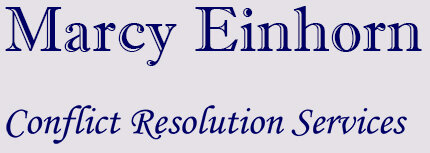Inter-generational Solutions
Often the types of family conflicts that arise in care and planning for an elder loved one involve the same sources of friction that you might see in a workplace conflict between members of different generations.
In the workplace setting different generations of workers may have different beliefs and values and different ideas of what constitutes acceptable behavior. These differences can lead to what is known as generational or inter-generational conflict. Without shared interests, this gap in values and beliefs can lead to communication gaps that may be difficult to bridge.
In working to heal these communication fault lines, mediators encourage families involved in an intergenerational conflict to first listen to what their family members are saying, regardless of any difference in age or values or beliefs. Listening becomes the peace-pipe or building block that can lay the foundation for reaching any sort of resolution in developing a plan of care for a vulnerable elder in the family. If the family members’ disagreement is caused by a simple misunderstanding of people’s positions, listening to each other may pull back the curtain on the source of that misunderstanding and allow the family members to move forward with a better view of where an agreement might lie. Of course, if the problem is deeper than a simple misunderstanding of positions, further work may need to be done, individually and as a family, to get past the deeper issues at play.
Family members will need to stay open to considering the value of the different viewpoints other family members hold. In the family setting, this might mean that a younger sibling might feel their voice is not valued, and that they’re never given the opportunity to have input on important decisions about the elder’s care while a much older sibling might minimize the need for anyone else’s input if they feel they are in control of the situation and don’t need to hear from anyone else. If the siblings can hear what each is willing to offer, without feeling threatened or infringed on by the other’s perspective, a constructive conversation just might take place, all to benefit the decisions being made about the elder’s care.
With this new awareness of the importance of listening to other family member’s viewpoints without judgement the family might just be ready to begin to create an action plan for the decisions that need to be made, whether those decisions involve housing choices, medical care and treatment or managing financial affairs.
Care and planning for an elder is always a vibrant, organic process rather than a one-off task. Families that can incorporate new skills such as listening without judgement and valuing the perspective of family members with different values and beliefs are like to have more success in negotiating the challenge of planning for a vulnerable elder’s well-being.
